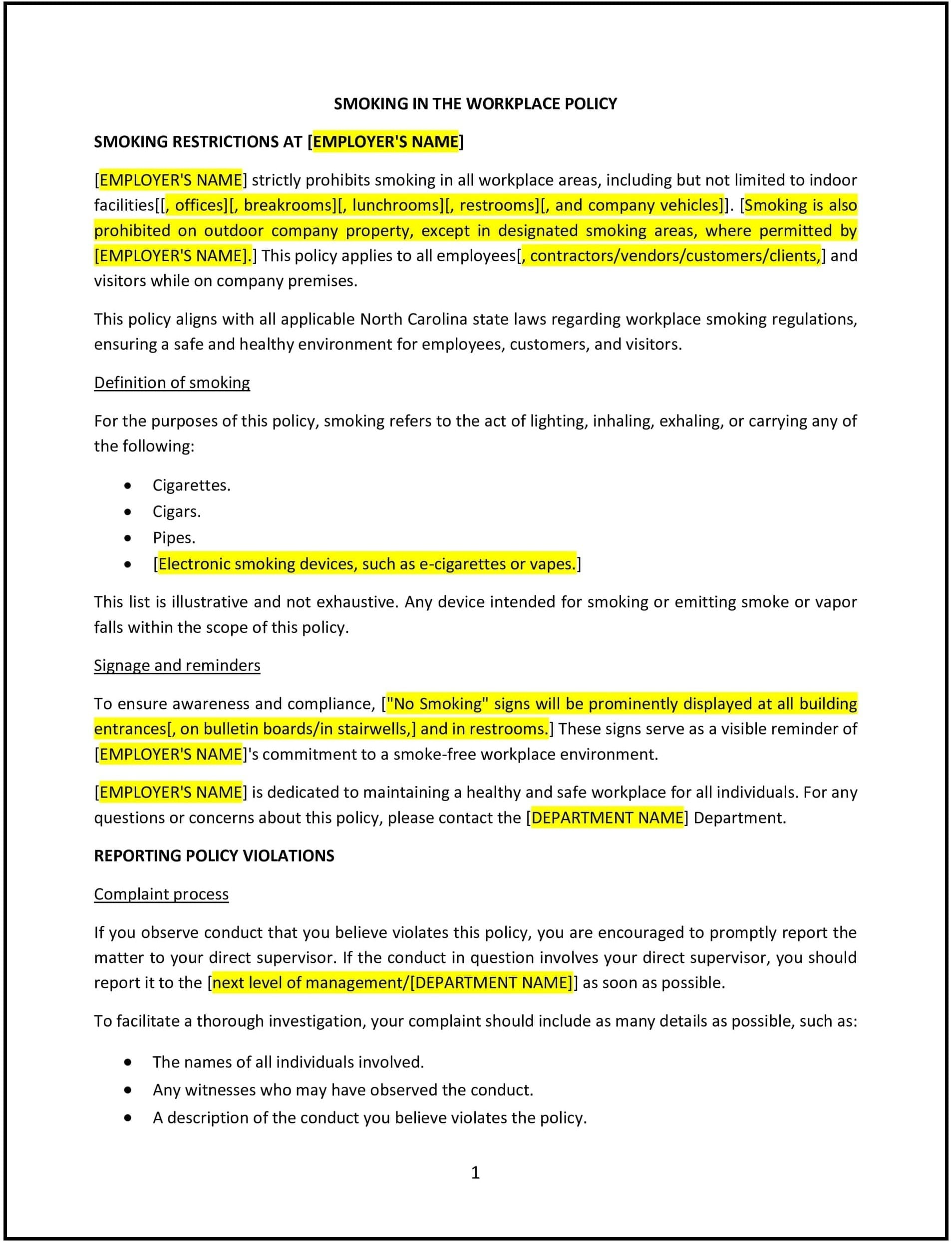Smoking in the workplace policy (North Carolina): Free template
Got contracts to review? While you're here for policies, let Cobrief make contract review effortless—start your free review now.

Customize this template for free
Smoking in the workplace policy (North Carolina)
A smoking in the workplace policy helps North Carolina businesses maintain a clean, safe, and healthy work environment by regulating smoking on company premises. This policy outlines where smoking is permitted, the consequences of violating the policy, and how the company will ensure a smoke-free workplace in compliance with local and state regulations.
By adopting this policy, businesses can reduce health risks, improve employee well-being, and comply with North Carolina’s laws regarding smoking in public places and workplaces.
How to use this smoking in the workplace policy (North Carolina)
- Define smoking areas: Specify where employees are allowed to smoke, ensuring that smoking areas are clearly marked and located away from entryways and ventilation systems.
- Address smoking breaks: Set guidelines for how often and for how long employees can take smoking breaks during work hours. Ensure that breaks do not interfere with productivity or operational needs.
- Outline consequences for violations: Specify the disciplinary actions employees will face if they violate the smoking policy, including verbal warnings, written warnings, or more severe consequences for repeated offenses.
- Reflect North Carolina-specific considerations: Ensure the policy complies with state laws, such as the North Carolina Smoke-Free Restaurants and Bars Law, which prohibits smoking in enclosed public spaces.
Benefits of using this smoking in the workplace policy (North Carolina)
This policy provides several benefits for North Carolina businesses:
- Promotes a healthy environment: Reduces exposure to secondhand smoke and helps create a healthier workplace for all employees.
- Enhances compliance: Ensures that the company complies with North Carolina’s smoking regulations, avoiding potential legal penalties.
- Improves employee satisfaction: Clear guidelines for smoking can improve overall employee morale and create a more comfortable working environment for non-smokers.
- Reduces fire risks: Designated smoking areas reduce the risk of accidental fires, particularly in areas where flammable materials may be present.
- Supports productivity: By regulating smoking breaks, businesses can ensure that employees stay productive without frequent interruptions for smoking.
Tips for using this smoking in the workplace policy (North Carolina)
- Communicate the policy clearly: Ensure that all employees understand where they are permitted to smoke and the consequences of non-compliance.
- Enforce consistently: Apply the smoking policy consistently across all employees to avoid any misunderstandings or perceptions of favoritism.
- Review the policy regularly: The policy should be reviewed annually to ensure it aligns with North Carolina’s smoking regulations and meets the company’s needs.